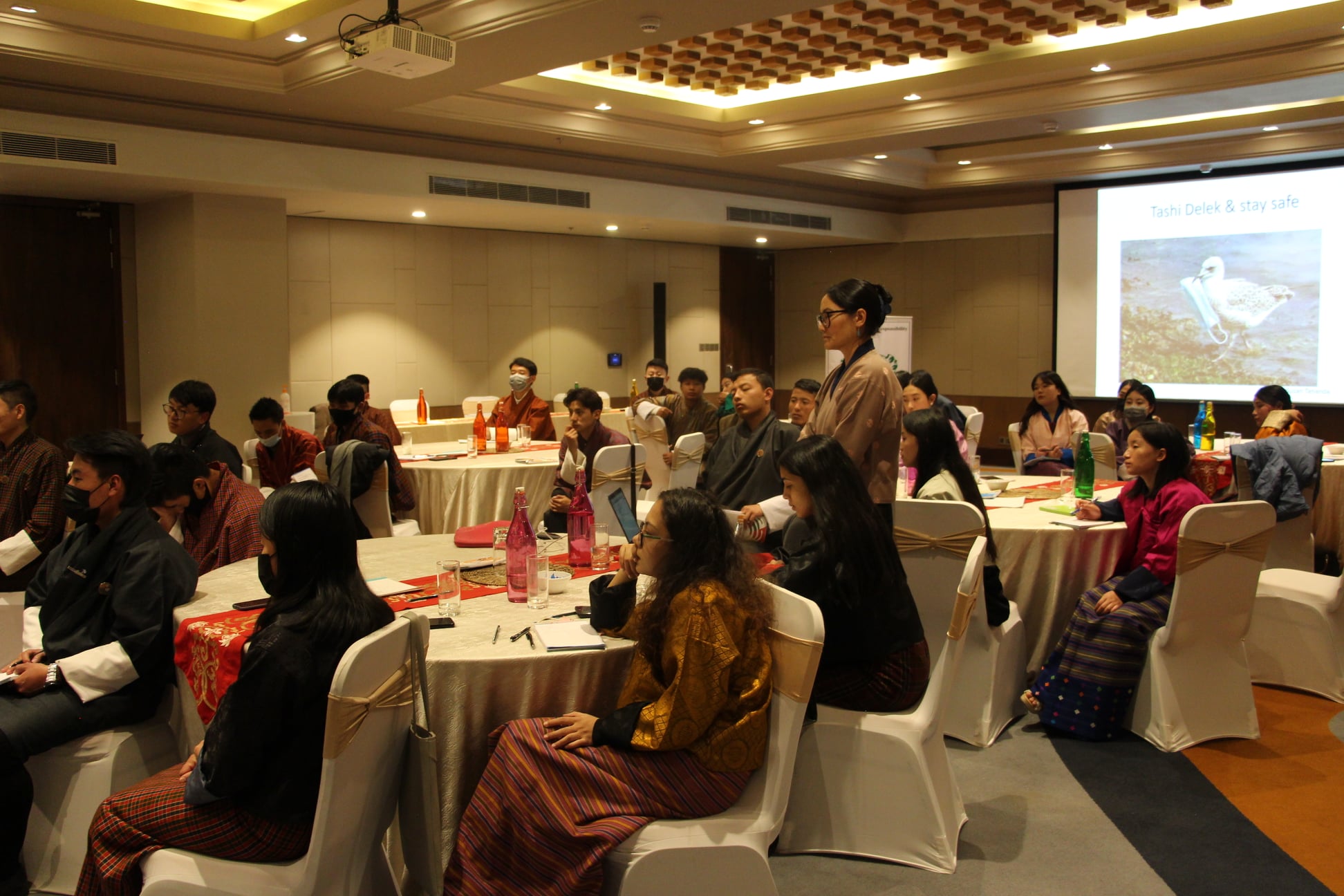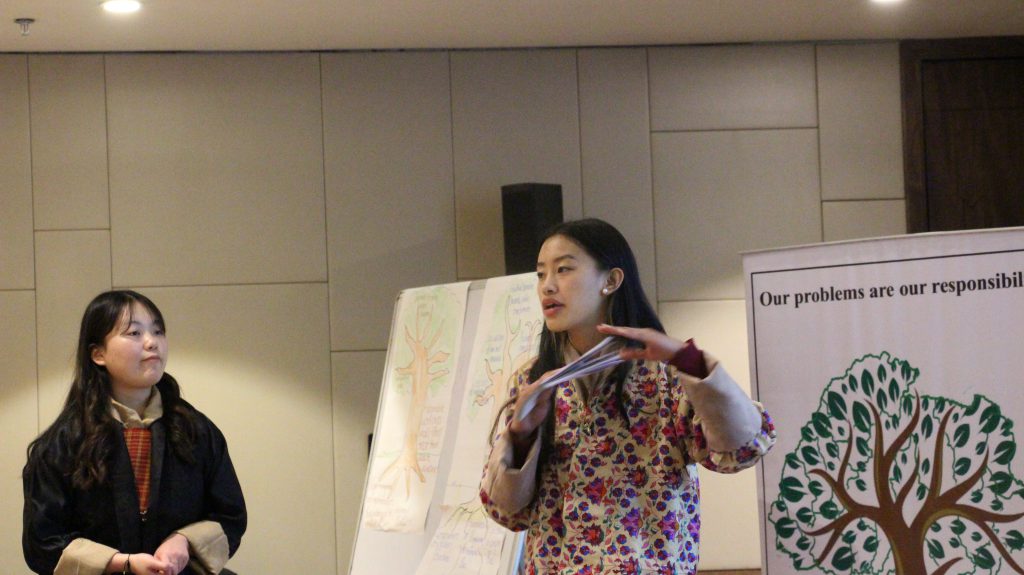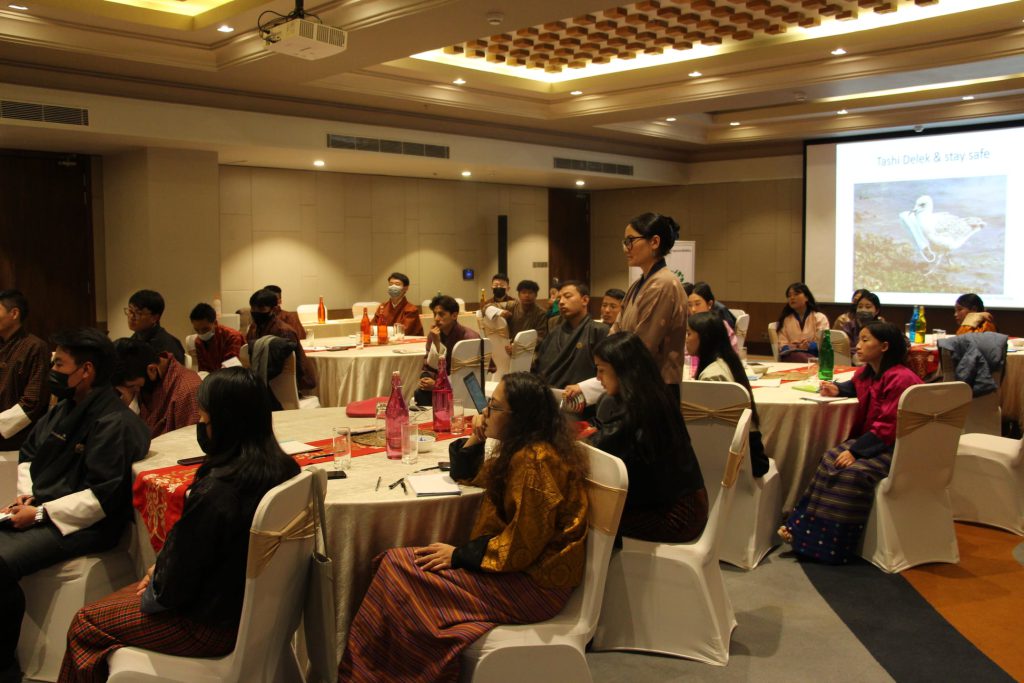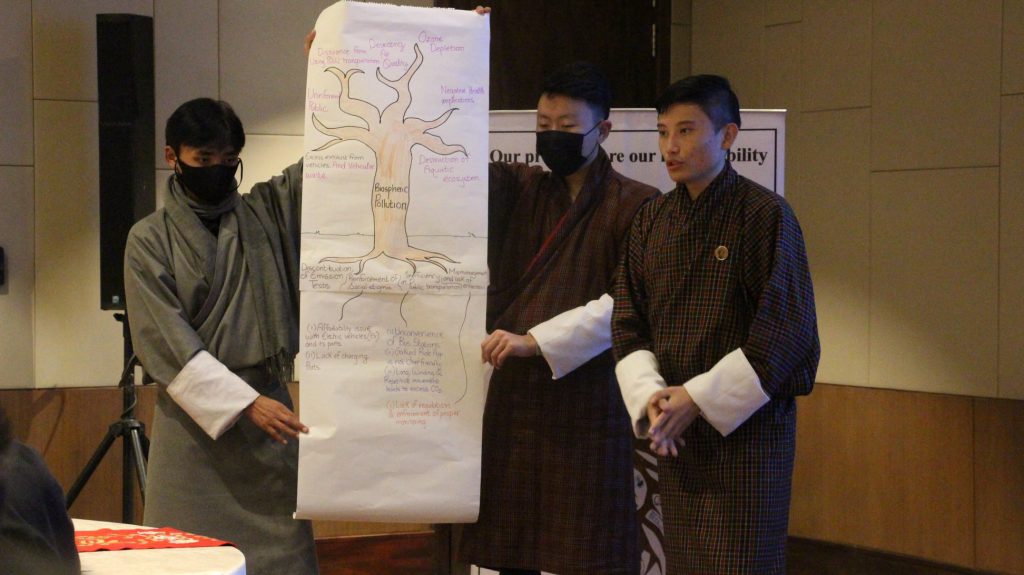
The 2022 winter youth initiative aimed to strengthen youths’ civic participation through empowering them with voice and agency. The objective of the project was to:

- Test the implementation of a Digital Citizen Engagement Platform that will source diverse citizen views on policy and legislative issues.
- Capacitate the youth with a deeper understanding of the issue (focus area) that is critical to generating constructive and meaningful responses.

 The 2022 Winter Youth Initiative brought together 26 youths from various educational institutions, including graduates, to learn about climate change and brainstorm on Bhutan’s response to mitigating and adapting to the global issue.
An eclectic mix of 6 speakers from government agencies and CSOs, independent consultants and researchers shed light on issues of urban development, transportation, industries, agriculture, and waste, their relation to climate change, and existing opportunities to address climate change in Bhutan.
The sensitization on climate change enhanced the youth’s understanding of the topic and highlighted the need for consulting youth on this topic as their future will greatly be impacted as a result of climate change.
The 2022 Winter Youth Initiative brought together 26 youths from various educational institutions, including graduates, to learn about climate change and brainstorm on Bhutan’s response to mitigating and adapting to the global issue.
An eclectic mix of 6 speakers from government agencies and CSOs, independent consultants and researchers shed light on issues of urban development, transportation, industries, agriculture, and waste, their relation to climate change, and existing opportunities to address climate change in Bhutan.
The sensitization on climate change enhanced the youth’s understanding of the topic and highlighted the need for consulting youth on this topic as their future will greatly be impacted as a result of climate change.
 "Until today, I was oblivious to the adverse impact that climate change is already having on the rest of the world," said Gyanzo, a student of CNR. Similarly, other participants expressed feelings of sadness knowing how people elsewhere are already bearing the brunt of climate change, and of guilt and anger at themselves for ignorantly aggravating climate change through their everyday acts and habits.
The consolidated 24 solutions from this two-day exercise were uploaded on Youth Conversations ( a digital engagement platform) that were live for about 2 months. In total, 7,359 people engaged on the platform to vote on the proposed solutions and provide additional responses to “What should Bhutan do to tackle climate change”.
The diverse responses range from talking about amending policies to mitigate climate change such as increasing royalties on the mining industry to adapting innovative planning such as including climate risk scenarios in local development plans. Collaborating with schools to educate and emphasise climate change was a popular solution, thus highlighting education's role in changing the mindset on climate change.
The consolidated themes and responses generated from the youth camp were uploaded to the Youth Conversations Platform for nationwide polling.
"Until today, I was oblivious to the adverse impact that climate change is already having on the rest of the world," said Gyanzo, a student of CNR. Similarly, other participants expressed feelings of sadness knowing how people elsewhere are already bearing the brunt of climate change, and of guilt and anger at themselves for ignorantly aggravating climate change through their everyday acts and habits.
The consolidated 24 solutions from this two-day exercise were uploaded on Youth Conversations ( a digital engagement platform) that were live for about 2 months. In total, 7,359 people engaged on the platform to vote on the proposed solutions and provide additional responses to “What should Bhutan do to tackle climate change”.
The diverse responses range from talking about amending policies to mitigate climate change such as increasing royalties on the mining industry to adapting innovative planning such as including climate risk scenarios in local development plans. Collaborating with schools to educate and emphasise climate change was a popular solution, thus highlighting education's role in changing the mindset on climate change.
The consolidated themes and responses generated from the youth camp were uploaded to the Youth Conversations Platform for nationwide polling.